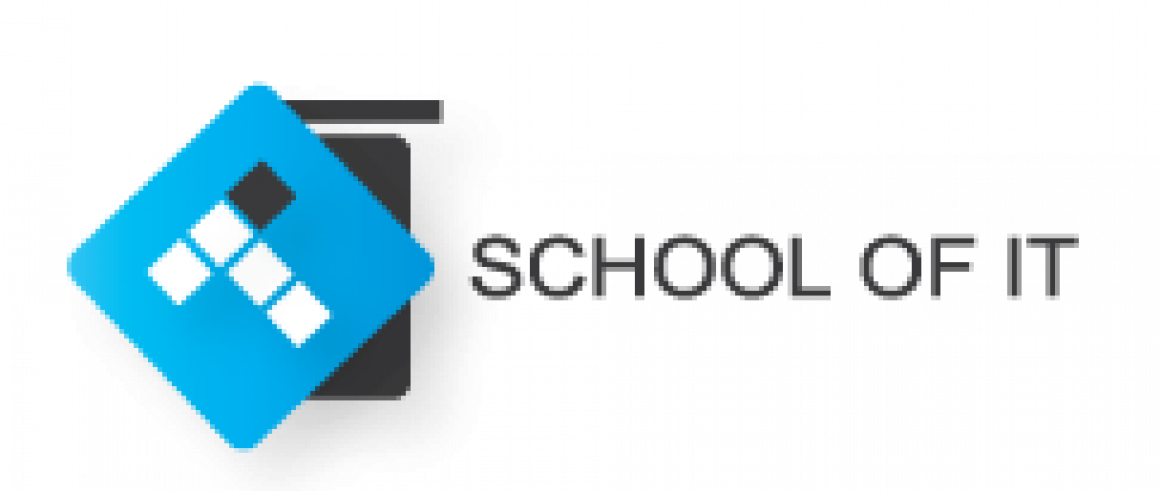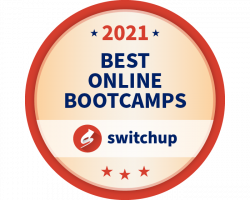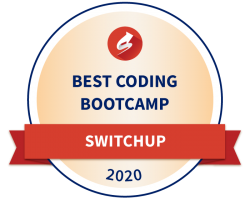AI Courses South Africa

AI Courses South Africa
December 1, 2024 Comments Off on AI Courses South AfricaAI Courses South Africa
Best Artificial Intelligence Course in South Africa
South Africa is a country on the southernmost tip of the African continent, marked by several distinct ecosystems. Inland safari destination Kruger National Park is populated by big game. The Western Cape offers beaches, lush winelands around Stellenbosch and Paarl, craggy cliffs at the Cape of Good Hope, forest and lagoons along the Garden Route, and the city of Cape Town, beneath flat-topped Table Mountain.
- Induction for Caltech Post Graduate Program in AI and Machine Learning.
- PGC AIML – Introduction to Artificial Intelligence.
- PGC AIML – Python for Data Science.
- PGC AIML – Applied Data Science with Python.
- PGC AIML – Machine Learning.
- PGC AIML – Deep Learning with Keras and TensorFlow.
Frequently asked questions about the Artificial Intelligence Course in South Africa.
Why AI Courses South Africa?
Overall Artificial intelligence (AI) refers to the simulation of human intelligence in machines that are programmed to think like humans and mimic their actions. The term may also be applied to any machine that exhibits traits associated with a human mind such as learning and problem-solving. Furthermore The exam can be taken at a testing center or from the comfort and convenience of a home or office location as an online proctored exam.
Part-Time
Fast forward your career in the IT industry with a part-time course at School of IT. In turn Part-time courses allow working professionals to transition into a new skill set while working. Moreover at School of IT we are agile and customize a course to the individual.
Full Time
Ready to start a career in IT? Use the Microsoft Azure platform as a full time student at School of IT. Thus beginning your career in Artificial Intelligence.
High School
Learn about the Microsoft Azure platform and prepare for the future while you’re still in high school. Thus no matter where you are, we come to you! Thus giving you the analytical skills to pursue your dreams!
Corporate
Learn about Artificial Intelligence (AI) Training in South Africa and up skill yourself or your company while you’re working. Thus no matter where you are, we come to you and give the tools to move up in your company.
Course Objectives.
All in all Learn the essential fundamentals of AI: the programming tools (Python, NumPy, PyTorch), the math (calculus and linear algebra), and the key techniques of neural networks (gradient descent and back propagation).
By the end of the AI Programming with Python Fundamentals, students will have usable knowledge of the following:
- Overall Introduction to Python.
- Learn how to use all the key tools for working with data in Python: Jupyter Notebooks, NumPy, Anaconda, pandas, and Matplotlib.
- Thus Learn the foundational linear algebra you need for AI success: vectors, linear transformations, and matrices.
- Learn the foundations of calculus to understand how to train a neural network: plotting, derivatives, the chain rule, and more. See how these mathematical skills visually come to life with a neural network example.
- Furthermore Gain a solid foundation in the hottest fields in AI: neural networks, deep learning, and PyTorch.
Course Objectives.
By the end of the Azure AI Fundamentals Course, students will have usable knowledge of the following:
- Overall Describe AI workloads and considerations.
- Get started with AI on Azure
- Create no-code predictive models with Azure Machine Learning.
- Use automated machine learning in Azure Machine Learning.
- Create a Regression Model with Azure Machine Learning designer.
- Create a classification model with Azure Machine Learning designer.
- In turn Create a Clustering Model with Azure Machine Learning designer.
- Explore computer vision in Microsoft Azure.
- Analyze images with the Computer Vision service.
- Classify images with the Custom Vision service.
- Detect objects in images with the Custom Vision service.
- Detect and analyze faces with the Face service.
- Read text with the Computer Vision service.
- Analyze receipts with the Form Recognizer service.
- Explore natural language processing.
- Analyze text with the Text Analytics service.
- Recognize and synthesize speech.
- Translate text and speech.
- Create a language model with Language Understanding.
- Explore conversational AI.
- Build a bot with QnA Maker and Azure Bot Service.
Course Objectives.
By the end of the Azure AI Engineer Associate Course, students will have usable knowledge of the following:
- Overall Evaluate text with Azure Cognitive Language Services.
- All in all Classify and moderate text with Azure Content Moderator.
- Be able to Add conversational intelligence to your apps by using Language Understanding Intelligent Service (LUIS).
- features of computer vision workloads on Azure.
- Discover sentiment in text with the Text Analytics API.
- In turn Process and Translate Speech with Azure Cognitive Speech Services.
- Thus Transcribe speech input to text.
- Synthesize Text Input to Speech.
- Translate speech with the speech service.
- Create Intelligent Bots with the Azure Bot Service.
- in turn Build a bot with QnA Maker and Azure Bot Service.
- Process and classify images with the Azure cognitive vision services.
- Identify faces and expressions by using the Computer Vision API in Azure Cognitive Services.
- Process images with the Computer Vision service.
- Classify images with the Microsoft Custom Vision Service.
- Thus Evaluate the requirements for implementing the Custom Vision APIs.
- All in all Extract insights from videos with the Video Indexer service.
Course Objectives.
By the end of the Vertex AI Course, students will have usable knowledge of the following:
- Overall Understand how Vertex AI works and use it as a machine learning platform.
- Learn about machine learning and NLP concepts.
- Know how to train and deploy machine learning models using Vertex AI.
Course Objectives.
By the end of the AlphaFold Course, students will have usable knowledge of the following:
- Overall Understand the basic principles of AlphaFold.
- Learn how AlphaFold works.
- Thus Learn how to interpret AlphaFold predictions and results.
Course Objectives.
By the end of the Data Mining Training Course, students will have usable knowledge of the following:
- All in all Install and configure Weka.
- Understand the Weka environment and workbench.
- Thus perform data mining tasks using Weka.
Course Objectives.
By the end of the NLP with R Training Course, students will have usable knowledge of the following:
- Installing and Configuring R Studio.
- Installing R Packages Related to Natural Language Processing (NLP).
- An Overview of R’s Text Manipulation Capabilities.
- Getting Started with an NLP Project in R.
- Reading and Importing Data Files into R.
- Text Manipulation with R.
- Document Clustering in R.
- Parts of Speech Tagging in R.
- Sentence Parsing in R.
- Working with Regular Expressions in R.
- Named-Entity Recognition in R.
- Topic Modeling in R.
- Text Classification in R.
- Working with Very Large Data Sets.
- Visualizing Your Results.
- Optimization.
- Integrating R with Other Languages (Java, Python, etc.).
- NLP and R vs Python.
Course Objectives.
By the end of the Natural Language Processing with Python Training, students will have usable knowledge of the following:
Introduction to NLP
- Simple Text Manipulation
- Searching Text
- Counting Words
- Splitting Texts into Words
- Lexical dispersion
- Processing complex structures
- Representing text in Lists
- Indexing Lists
- Collocations
- Bigrams
- Frequency Distributions
- Conditionals with Words
- Comparing Words (startswith, endswith, islower, isalpha, etc…)
- Natural Language Understanding
- Word Sense Disambiguation
- Pronoun Resolution
- Machine translations (statistical, rule based, literal, etc…)
- Exercises
NLP in Python in examples
- Accessing Text Corpora and Lexical Resources
- Common sources for corpora
- Conditional Frequency Distributions
- Counting Words by Genre
- Creating own corpus
- Pronouncing Dictionary
- Shoebox and Toolbox Lexicons
- Senses and Synonyms
- Hierarchies
- Lexical Relations: Meronyms, Holonyms
- Semantic Similarity
- Processing Raw Text
- Priting
- Struncating
- Extracting parts of string
- Accessing individual charaters
- Searching, replacing, spliting, joining, indexing, etc…
- Using regular expressions
- Detecting word patterns
- Stemming
- Tokenization
- Normalization of text
- Word Segmentation (especially in Chinese)
- Categorizing and Tagging Words
- Tagged Corpora
- Tagged Tokens
- Part-of-Speech Tagset
- Python Dictionaries
- Words to Propertieis mapping
- Automatic Tagging
- Determining the Category of a Word (Morphological, Syntactic, Semantic)
- Text Classification (Machine Learning)
- Supervised Classification
- Sentence Segmentation
- Cross Validation
- Decision Trees
- Extracting Information from Text
- Chunking
- Chinking
- Tags vs Trees
- Analyzing Sentence Structure
- Context Free Grammar
- Parsers
- Building Feature Based Grammars
- Grammatical Features
- Processing Feature Structures
- Analyzing the Meaning of Sentences
- Semantics and Logic
- Propositional Logic
- First-Order Logic
- Discourse Semantics
- Managing Linguistic Data
- Data Formats (Lexicon vs Text)
- Metadata
Course Objectives.
By the end of the Data Science and AI using Python Training Course, students will have usable knowledge of the following:
Introduction to Data Science/AI
- Knowledge acquisition through data
- Knowledge representation
- Value creation
- Data Science overview
- AI ecosystem and new approach to analytics
- Key technologies
Data Science workflow
- Crisp-dm
- Data preparation
- Model planning
- Model building
- Communication
- Deployment
Data Science technologies
- Languages used for prototyping
- Big Data technologies
- End to end solutions to common problems
- Introduction to Python language
- Integrating Python with Spark
AI in Business
- AI ecosystem
- Ethics of AI
- How to drive AI in business
Data sources
- Types of data
- SQL vs NoSQL
- Data Storage
- Data preparation
Data Analysis – Statistical approach
- Probability
- Statistics
- Statistical modeling
- Applications in business using Python
Machine learning in business
- Supervised vs unsupervised
- Forecasting problems
- Classfication problems
- Clustering problems
- Anomaly detection
- Recommendation engines
- Association pattern mining
- Solving ML problems with Python language
Deep learning
- Problems where traditional ML algorithms fails
- Solving complicated problems with Deep Learning
- Introduction to Tensorflow
Natural Language processing
Data visualization
- Visual reporting outcomes from modeling
- Common pitfalls in visualization
- Data visualization with Python
From Data to Decision – communication
- Making impact: data driven story telling
- Influence effectivnes
- Managing Data Science projects
The career prospects for AI Courses South Africa is high in demand. Artificial Intelligence is everywhere: on all platforms and devices and in all countries around the world!
- All in all an Azure Architect
- Cloud Developer.
- Web Developer.
- Furthermore a junior developer.
- Become a Cloud DevOps Engineer.
- Thus become a Azure Software Engineer.
- Networking Specialist.




